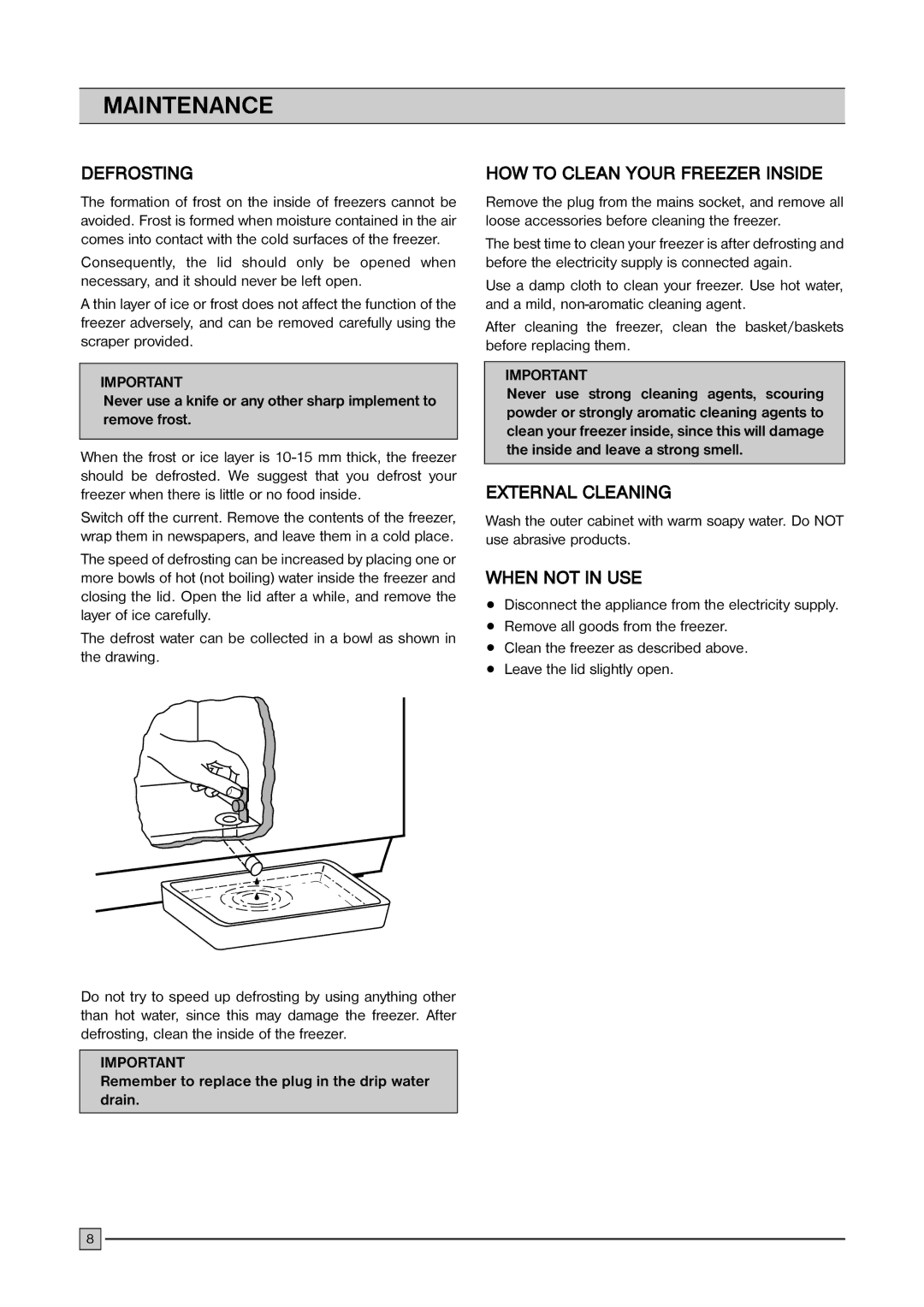
MAINTENANCE
DEFROSTING
The formation of frost on the inside of freezers cannot be avoided. Frost is formed when moisture contained in the air comes into contact with the cold surfaces of the freezer.
Consequently, the lid should only be opened when necessary, and it should never be left open.
A thin layer of ice or frost does not affect the function of the freezer adversely, and can be removed carefully using the scraper provided.
IMPORTANT
Never use a knife or any other sharp implement to remove frost.
When the frost or ice layer is
Switch off the current. Remove the contents of the freezer, wrap them in newspapers, and leave them in a cold place.
The speed of defrosting can be increased by placing one or more bowls of hot (not boiling) water inside the freezer and closing the lid. Open the lid after a while, and remove the layer of ice carefully.
The defrost water can be collected in a bowl as shown in the drawing.
Do not try to speed up defrosting by using anything other than hot water, since this may damage the freezer. After defrosting, clean the inside of the freezer.
IMPORTANT
Remember to replace the plug in the drip water drain.
HOW TO CLEAN YOUR FREEZER INSIDE
Remove the plug from the mains socket, and remove all loose accessories before cleaning the freezer.
The best time to clean your freezer is after defrosting and before the electricity supply is connected again.
Use a damp cloth to clean your freezer. Use hot water, and a mild,
After cleaning the freezer, clean the basket/baskets before replacing them.
IMPORTANT
Never use strong cleaning agents, scouring powder or strongly aromatic cleaning agents to clean your freezer inside, since this will damage the inside and leave a strong smell.
EXTERNAL CLEANING
Wash the outer cabinet with warm soapy water. Do NOT use abrasive products.
WHEN NOT IN USE
Disconnect the appliance from the electricity supply. Remove all goods from the freezer.
Clean the freezer as described above. Leave the lid slightly open.
8
